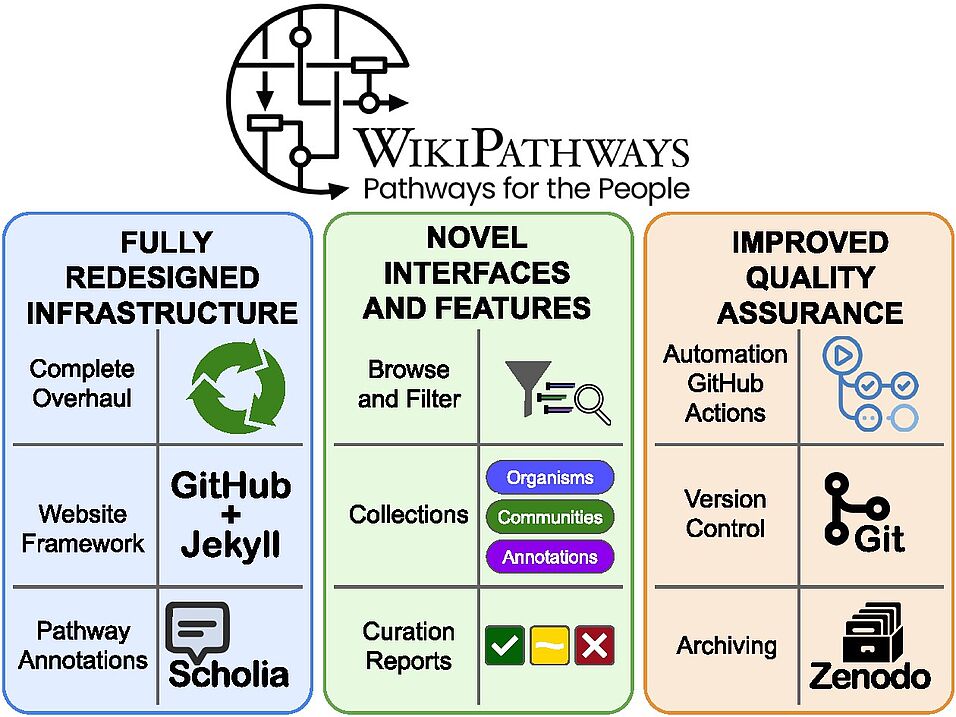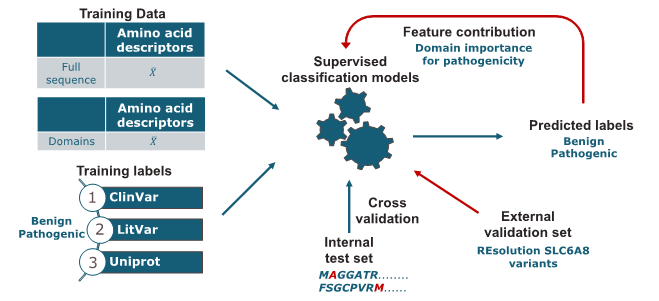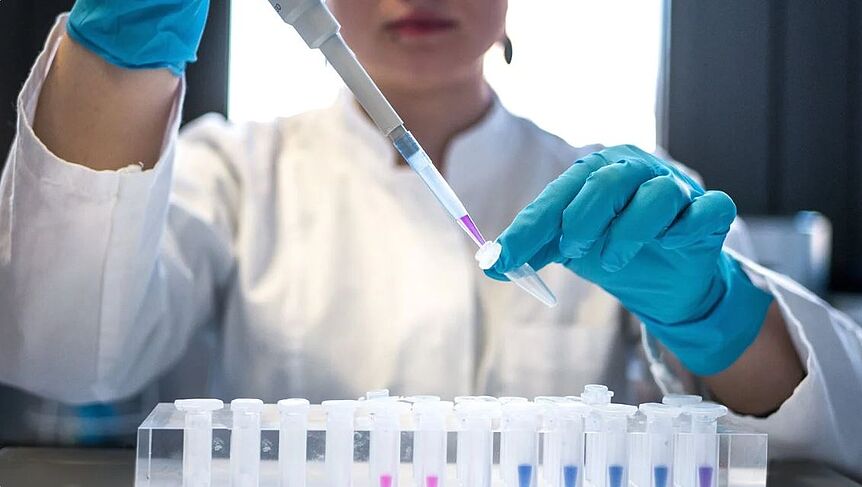Ayushi Agrawal, Hasan Balcı, Kristina Hanspers, Susan L Coort, Marvin Martens, Denise N Slenter, Friederike Ehrhart, Daniela Digles, Andra Waagmeester, Isabel Wassink, Tooba Abbassi-Daloii, Elisson N Lopes, Aishwarya Iyer, Javier Millán Acosta, Lars G Willighagen, Kozo Nishida, Anders Riutta, Helena Basaric, Chris T Evelo, Egon L Willighagen, Martina Kutmon, Alexander R Pico. WikiPathways 2024: next generation pathway database, Nucleic Acids Research, 2023
DOI
https://doi.org/10.1093/nar/gkad960
Abstract
WikiPathways (wikipathways.org) is an open-source biological pathway database. Collaboration and open science are pivotal to the success of WikiPathways. Here we highlight the continuing efforts supporting WikiPathways, content growth and collaboration among pathway researchers. As an evolving database, there is a growing need for WikiPathways to address and overcome technical challenges. In this direction, WikiPathways has undergone major restructuring, enabling a renewed approach for sharing and curating pathway knowledge, thus providing stability for the future of community pathway curation. The website has been redesigned to improve and enhance user experience. This next generation of WikiPathways continues to support existing features while improving maintainability of the database and facilitating community input by providing new functionality and leveraging automation.
Rights & permissions
This is an open access article distributed under the terms of the Creative Commons CC BY license, which permits unrestricted use, distribution, and reproduction in any medium, provided the original work is properly cited.
Copyright © 2023, © The Author(s) 2023. Published by Oxford University Press on behalf of Nucleic Acids Research.




